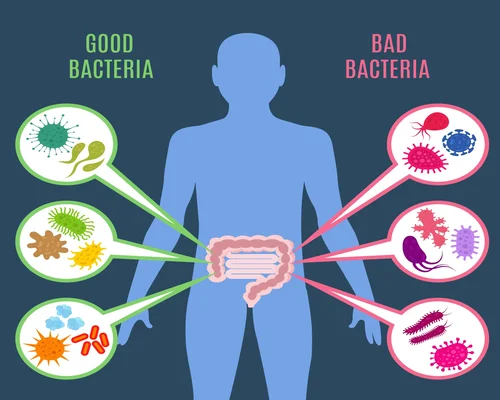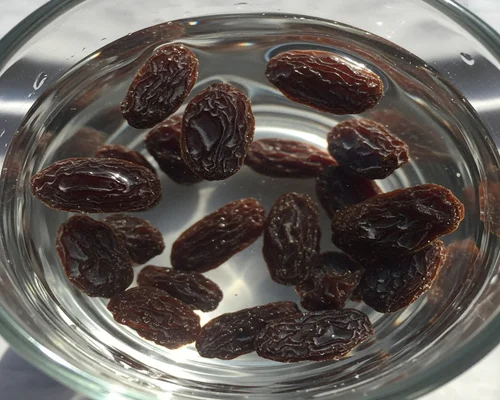
Indian Mackerel Fish Health Benefits and Side Effects
Health Benefits and Side Effects of Indian Mackerel Fish
Related to
Indian mackerel is a species of mackerel in the scombrid family Perciformes. It is commonly found in the Indian and Western Pacific Oceans and their surrounding seas. It is an important food fish and is commonly used in South and Southeast Asian cuisine. The scientific name is Rastrelliger kanagurta, belonging to the class Actinopterygii and the family Scombridae.
Mackerel is also known as Bangada, Kembung, Aila, Aila Meen, Bangude etc. in India.
Indian mackerel is an oily fish. Indian mackerel (known as "bangda" in some regions) is a common fish in India that is oily and rich in omega-3 fatty acids.
Mackerel "is the perfect fish. While these fish are inexpensive because mackerel is plentiful and not that popular in the U.S. (yet), they are one of the best value propositions available.
Indian Mackerel Nutrition:
Indian mackerel
- 9 g 12% of total fat
- 2.5 grams of saturated fat 13%
- Cholesterol 55mg 18%
- Sodium 95mg 4%
- 0g 0% Total Carbohydrates
- Dietary Fiber 0 g 0%
- 0 grams of sugar.
- 23 grams of protein.
Health benefits of Indian Mackerel
Indian mackerel is considered as one of the most nutritious fish. They are an excellent source of protein, vitamins B2, B3, B6 and B12 and vitamin D. Their meat is also full of minerals like copper, selenium and iodine. Some of these fish also contain good amounts of iron and vitamin B1.
Indian mackerel offers a wide range of health benefits. It is rich in omega-3 fatty acids that improve cardiovascular health, reduce inflammation and lower blood pressure. Omega-3s also support brain function, memory and mental health, reduce the risk of cognitive decline and manage mood disorders.
Mackerel fish is very effective in regulating the hormone levels in your body and also improves the elasticity of blood vessels and capillaries. It helps reduce cancer causing agents and thus prevents the risk of many cancers. It is beneficial in reducing bad cholesterol levels.
Indian mackerel is generally considered good for health due to its nutritional content and health benefits. Regular consumption can support cardiovascular health, brain function and weight management.
Indian mackerel is good for your heart. Full of minerals like copper, selenium and iodine. Some of these fish also contain good amounts of iron and vitamin B1. Mackerels belong to the "oily fish" category, so they are one of the best sources of omega-3s—good fats that keep your heart and brain healthy.
Lose weight
Mackerel is good for weight loss. Although fatty fish like mackerel do contain some calories and people may find it best to avoid them, experts believe they are great for those trying to lose weight. Omega-3 fatty acid content in oily fish improves satiety
Mackerel is good for reducing belly fat. Mackerel and other fatty fish contain omega-3 fatty acids, which can help you lose body fat.
To control blood sugar
Eating oily fish helps control blood sugar. A study published in the British Journal of Nutrition found that blood sugar levels dropped significantly after a meal that included oily fish. Oily fish include salmon, sardines, herring, anchovies and mackerel.
Blood pressure
Fatty fish like mackerel are high in omega-3 fatty acids, which can lower blood pressure, reduce inflammation and lower triglycerides. The high level of potassium present in this fish helps in reducing the risk of health complications as well as keeping the blood pressure normal. Mackerel has many health benefits, including lowering blood pressure, improving heart health, building strong bones, and reducing the risk of diabetes. Plus, some research suggests that regular consumption can help lower your blood pressure and cholesterol.
Mackerel Benefits for Skin
Fatty fish, such as salmon, mackerel and herring, are excellent foods for healthy skin. They are a rich source of omega-3 fatty acids, which are important for maintaining skin health. Omega-3 fatty acids help keep the skin plump, supple and moisturized. Mackerel fish contains a whole raft of essential nutrients that help keep our skin in top condition, including omega 3 and vitamins A and D.
Mackerel Mackerel is a powerful food that contributes to glowing skin. Avoid fish high in omega-6 fatty acids such as calamari as omega-6 is pro-inflammatory, meaning too much will make your acne worse.
Mackerel benefits for men
Cardiovascular disease is any disease involving the heart or blood vessels. CVD forms a class of diseases that includes: coronary artery disease, heart failure, hypertensive heart disease. These include heart disease, cancer, metabolic syndrome, Alzheimer and various degenerative conditions. Thus, Indian mackerel can help control your inflammation. Mackerel nutrition to prevent heart disease, some health practitioners may suggest.
According to the American Heart Association, mackerel fish omega-3 fatty acids help reduce the risk of heart disease and lower triglyceride levels.
Cholesterol is low
Can lower cholesterol levels. With an impressive level of omega-3 fatty acids, mackerel fish can improve cholesterol balance in the body by lowering LDL.
Kingfish helps lower bad cholesterol levels due to the rich supply of omega-3 fatty acids found in mackerel fish. Mackerel is rich in omega-3 polyunsaturated fatty acids such as DHA and EPA, which lower bad cholesterol and triglycerides and increase good cholesterol.
Reduces the risk of diabetes
Mackerel has several health benefits, including lowering blood pressure, improving heart health, building strong bones, and reducing the risk of diabetes.
Improves cognitive function
While much of our cognitive ability is nature, various foods and drinks can have a positive (or detrimental) effect on cognition. On the positive side, the inclusion of mackerel (and full nutrition information) may provide these beneficial omega-3 fatty acids, supporting optimal brain function.
Eye health
Improves eye health. Omega 3 fatty acids found in mackerel are linked to eye health. Studies suggest that foods rich in these nutrients can help.
Mackerel supports eye development. It is recommended that pregnant and breastfeeding women get enough omega-3 but avoid high-mercury fish.
Inflammation and joint health
Rich in omega 3 fatty acids, mackerel has anti-inflammatory properties. Chronic inflammation is believed to be among the leading drivers of many serious diseases.
Polyunsaturated fats, especially omega-3 fatty acids, are known for their numerous health benefits. They help reduce inflammation in the body, supporting the brain.
Prevents arthritis
Indian mackerel helps prevent arthritis due primarily to its anti-inflammatory properties thanks to the presence of omega-3 fatty acids.
Arthritis is basically inflammation of the joints and this is something that fish oil works against. Omega 3 fatty acids present in fish oil can help.
Physical fitness
Mackerel is rich in healthy fats and protein, which can help you feel full and help you lose weight. Studies have shown that, although mackerel fish have a high level of calories, about 250 per filet, they can provide a large amount of protein, which... can help lose weight ... Omega 3 polyunsaturated fatty acids have a beneficial effect on obesity; It helps reduce body fat by stimulating lipid oxidation.
What are the side effects of Indian Mackerel fish?
Mackerel should not be eaten, women who are or may be pregnant, nursing mothers and young children, the healthiest approach is to eat two servings of fish or other seafood per week.
Some people may be allergic to fish and should avoid eating mackerel. Mackerel is also prone to causing histamine toxicity, a type of food poisoning that can cause facial and body flushing, nausea, headaches and swelling.
King mackerel has been found to contain high levels of mercury, which can be dangerous in high amounts and even lead to mercury poisoning. Spanish mackerel can also contain high levels of mercury, and should not be consumed by breastfeeding or pregnant women in particular.




-vegetable.webp)






















